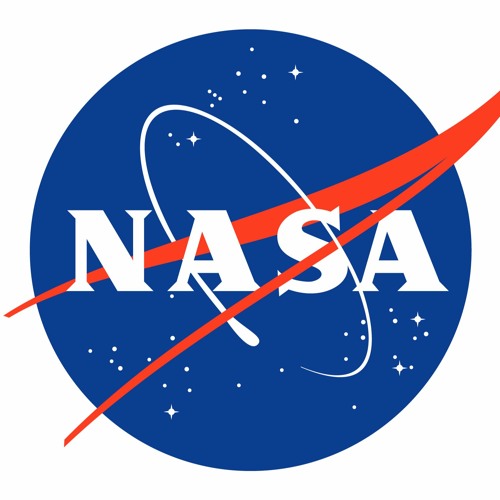 NASA Ames Research Center: From small spacecraft to supercomputers, science missions and payloads to thermal protection systems, information technology to aerospace, Ames Research Center, Moffett Field, Calif., provides products, technologies and services that enable NASA missions and expand human knowledge. The center plays a critical role in virtually all NASA missions in support of America’s space and aeronautics programs. NASA Ames enables exploration through development, innovative technologies and interdisciplinary scientific discovery.
NASA Ames Research Center: From small spacecraft to supercomputers, science missions and payloads to thermal protection systems, information technology to aerospace, Ames Research Center, Moffett Field, Calif., provides products, technologies and services that enable NASA missions and expand human knowledge. The center plays a critical role in virtually all NASA missions in support of America’s space and aeronautics programs. NASA Ames enables exploration through development, innovative technologies and interdisciplinary scientific discovery.
NASA Ames was founded in 1939 as an aeronautics research laboratory. In 1958 it became part of NASA. With Its location in the heart of Silicon Valley, the lab is at the core of high-tech companies, universities, and laboratories, giving it opportunities to build innovative partnerships to advance the future of space exploration.
2024 NASA Mentor Interview
The folks at NASA Ames once again did a bang-up job as a mentor for the 2024 Winter Classic. This is the third time they’ve fulfilled this vital function, and their challenges keep getting better and better.
In their first challenge, in 2022, they had the teams work with the NAS Parallel benchmarks, learning to run and then performance optimize them. In 2023, they tasked the students with learning and wringing performance out of WRF.
This year, they had the students work on NPB-MPI BTIO, a subset of NAS Par. As usual, there were multiple scored components during the NASA competition week, which allows teams to get partial credit for hitting milestones, and also ensures that they don’t leave everything for the last couple of days. (BTW, Sherry Chang put together a killer quiz for the students that made them squirm – but also learn.)
In the video, we interview the NASA Ames team that put together the challenge, trained the students, and supported them during the week. Particularly noteworthy is Henry Jin, Senior Research Scientist at NASA Ames, and one of the authors of the NAS Parallel benchmarks.
2023 NASA Mentor Interview
Meet the mentor team behind the 2023 NASA WRF Challenge!
2023 Winter Classic: NASA WRF Challenge Results are in!
A wintery mix with a chance for scattered dependencies was the forecast as students tackled the NASA WRF Challenge in the 2023 Winter Classic Invitational Student Cluster Competition. In this challenge, the students not only have to run WRF, but they have to build it up from scratch as well. It’s a tall mountain to climb for the teams who haven’t dirtied their hands in this level of stuff before. But, aided by the strong training suite that NASA provided, we had 11 of 12 teams turn in a result, which is very good for a cluster competition.
In the video, Addison (yeah, he’s back!) and I go through how the WRF challenge is scored and then we, for the first time anywhere, reveal how the twelve teams did and how it impacted the “The Big Board.” It’s a video thrill ride as we pull back the curtain and refresh the leaderboard for this next to last compute module.
2022 NASA Mentor Interview
The NASA mentors are featured on this edition of the 2022 Winter Classic Invitational Studio Update Show. We get to know the mentors while discussing the NAS Par challenge, the results, and the competition standings.
 Winter Classic 2022: NASA Results In!
Winter Classic 2022: NASA Results In!
NASA hosted and mentored the twelve teams competing in the Winter Classic Invitational Student Cluster Competition last week and we’re ready to reveal the results.
The student teams competed to run and optimize three subsets of the NAS Parallel benchmarks, namely BT-MZ, SP-MZ, and the ever so challenging LU-MZ.
All of the teams managed to submit scores for all three of the benchmarks, although one team submitted scores for the wrong benchmarks, which led to a considerable downgrade in their final score.
Here are some highlights:
Fayetteville State University topped all competitors on BT-MZ, giving them their first outright win of the season. It’s great to see this team get a win and add 100 points to their total score. Tennessee State came in a very close second with 99.63 points and the Red Raiders were an eyelash behind at 99.27.
Tennessee State University grabbed a narrow win over the field on the SP-MZ benchmark, taking home 100 points on this segment of the challenge. They just barely edged out the Red Raiders, Matadors, and UTEP, who turned in normalized scores of 98% and above.
Florida Agricultural & Mechanical (FAMU) took home 100 points on LU-MZ, which turned out to be the most difficult benchmark for the field of twelve. The average score on this benchmark was 72.96 and only two teams, Tennessee and the Texas Tech Matadors, managed to give FAMU a run for their money with scores of 98.03 and 94.46 respectively.
The NASA module impacted the Big Board, which tracks up-to-the-minute team positions. Here are the top overall standings:
Tennessee State continues to own the #1 spot with an overall score of 394.84
FAMU slid into second place by virtue of LU-MZ, with a total score of 343.74
Texas Tech Team Red Raider dropped to third place but is barely behind FAMU with 337.81 points.
UTEP nabbed fourth place by winning the HPC Pop Quiz and is defending that position with their NASA results, giving them 322.54 points overall.
The Texas Tech Matadors rode their excellent NASA scores into fifth place with 306.93 total points.
Prairie View slides down to sixth place with 304.15 points, but is still squarely in the game.
In the Battle for Channel Islands, the Ekhos Engineer team put a little more daylight between themselves and their rival Don’t Panic team. Team Ekhos Engineers has 278 .20 points vs. 264.15 for Don’t Panic. This battle is still too close to call.
For more detailed scoring and commentary, click your clickers on the video below. Addison and I tear through all of the results, slice ‘em, dice ‘em, and post them onto the 2022 Leaderboard.
